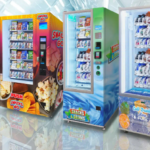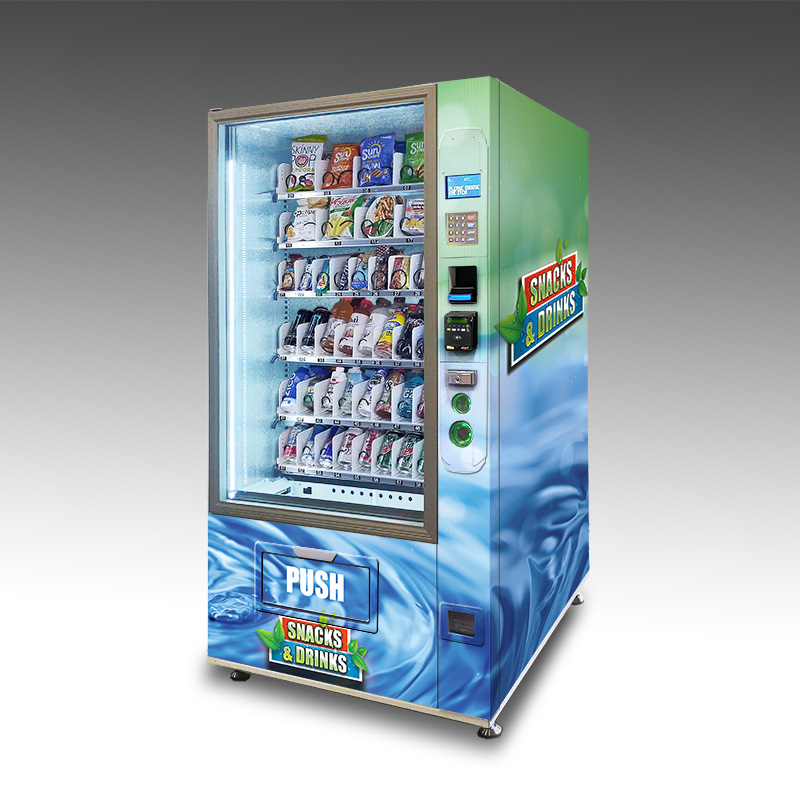Exploring the Rise of Vending Machine Franchises and Their Revenue Growth in a Post Pandemic Market
The vending machine franchise sector has experienced remarkable growth and transformation in the wake of the COVID-19 pandemic, making it a significant area of exploration for entrepreneurs and investors alike. According to a recent market report by IBISWorld, the vending machine industry in the United States alone is projected to reach $4.3 billion by 2023, demonstrating a compound annual growth rate (CAGR) of 2.3%. This resurgence can be attributed to changing consumer preferences for contactless transactions and the demand for convenient access to snacks and beverages.

Furthermore, the global vending machine market is expected to expand steadily, with Research and Markets estimating it to surpass $30 billion by 2027. This growth is driven not only by traditional vending machine operators but also by a new wave of franchises that utilize technology and innovative approaches to meet evolving consumer needs. As we delve into this phenomenon, it is essential to understand the factors influencing the rise of vending machine franchises and their burgeoning revenue in a post-pandemic marketplace.
The Evolution of Vending Machines in the Wake of the Pandemic
The pandemic has accelerated the transformation of vending machines, evolving them from simple, mechanical dispensers into sophisticated self-service solutions that cater to modern consumer demands. With the rise of the guest self-service era, vending machines have significantly adapted to incorporate technology that enhances user experience. For instance, industry reports indicate that the integration of artificial intelligence (AI) into vending machines has led to smarter inventory management and personalized product recommendations, which ultimately drive consumer engagement and sales.
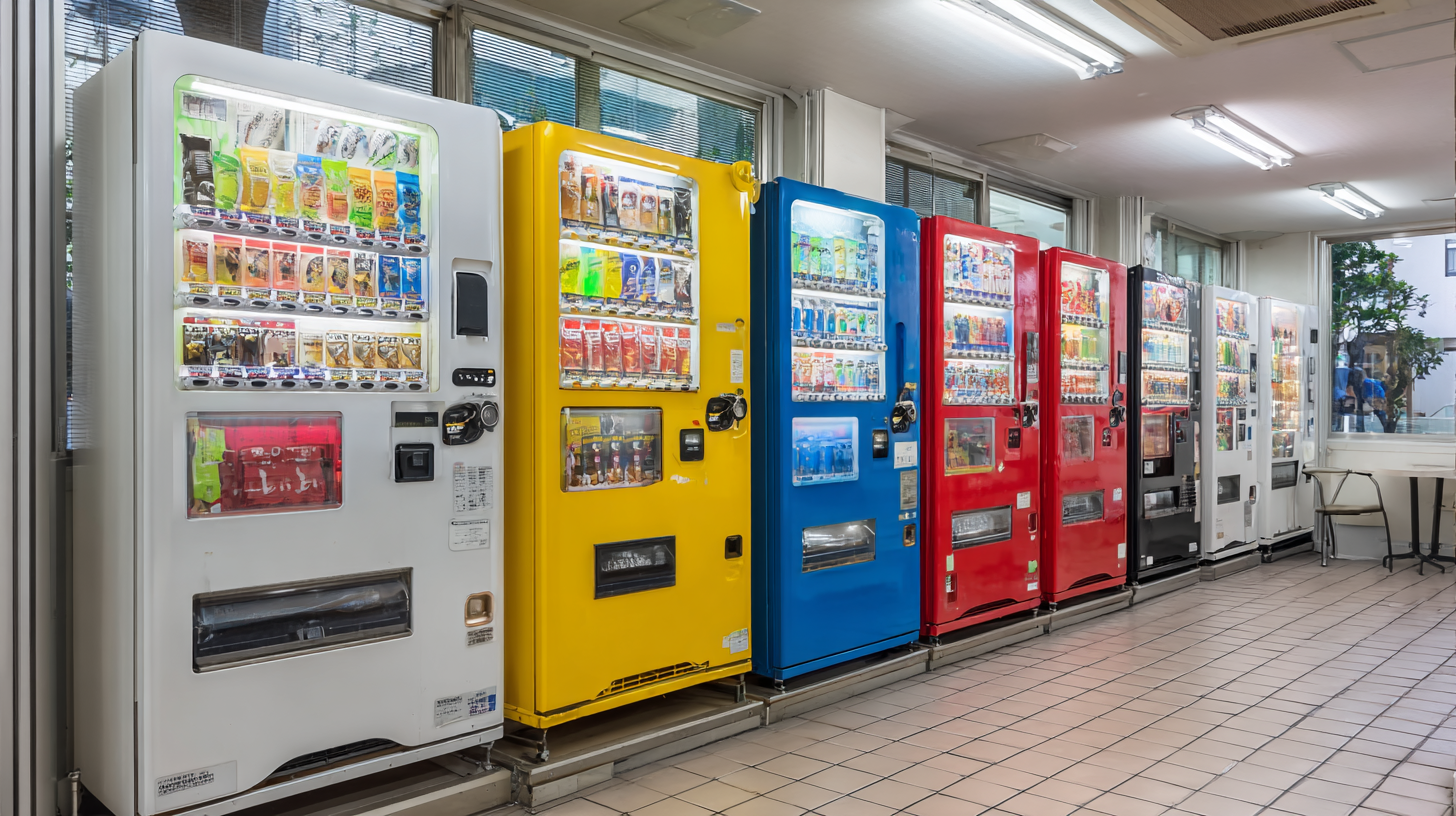
Moreover, the rise of contactless payments has further propelled the vending machine sector into a new age. According to market analyses, contactless transactions have surged by over 200% in recent years, a trend amplified by the pandemic as consumers prioritize safety and convenience. In fact, projections suggest that by 2025, contactless payments will account for a substantial portion of vending machine transactions. This shift not only improves the efficiency of the purchase process but also aligns with the growing consumer expectation for seamless and hygienic transactions. As a result, vending machine franchises are well-positioned to capitalize on these trends, driving revenue growth in the post-pandemic marketplace.
Key Factors Driving Revenue Growth in Vending Machine Franchises
In the wake of the pandemic, vending machine franchises have emerged as a resilient and adaptable business model, showcasing impressive revenue growth. One key factor driving this surge is the shift in consumer behavior towards convenience and contactless transactions. As people prioritize safety and efficiency, vending machines equipped with cashless payment options are seeing increased usage. This evolution not only meets the demand for hygiene but also attracts a tech-savvy clientele that values quick access to products.
Additionally, the diversification of vending machine offerings has played a significant role in revenue expansion. Modern franchises are moving beyond traditional snacks and beverages to include healthier options, fresh food items, and even non-food products like personal protective equipment. By catering to changing dietary preferences and lifestyle choices, these vending machines tap into various market segments, driving higher sales volumes. Furthermore, strategic placement in high-traffic locations such as offices, gyms, and public transport hubs maximizes visibility and accessibility, ultimately contributing to the overall growth of vending machine franchises in a competitive post-pandemic landscape.
Innovative Products and Services Reshaping Vending Machine Offerings
The vending machine industry is undergoing a transformative shift as innovative products and services reshape its offerings in a post-pandemic market. According to a report by IBISWorld, the vending machine industry's revenue is expected to grow by 4.1% annually over the next five years, indicating a strong recovery and adaptation to new consumer preferences. This growth is driven by the introduction of healthier options, gourmet snacks, and even technology-laden machines that accept digital payments, making them more accessible and appealing to a wider audience.
As we explore the new landscape of vending machines, it's important to consider how businesses can capitalize on this trend. Implementing smart vending machines that leverage IoT technology can significantly enhance customer experience by providing real-time inventory updates and personalized recommendations. Additionally, offering a diverse range of products, from organic snacks to artisanal beverages, can attract health-conscious consumers and create a loyal customer base.
**Tip:** Stay informed on consumer trends by conducting regular surveys to understand what your target market desires in vending offerings.
Integrating services like pre-ordering through an app can also streamline the purchasing process, appealing specifically to tech-savvy consumers who seek convenience. Ensure to promote the unique features of your machines, such as touchless payment options and contactless delivery, which address the lingering concerns regarding hygiene in a post-pandemic world.
**Tip:** Consider partnerships with local food artisans or brands for exclusive products, creating a unique selling proposition that sets your franchise apart from competitors.
Challenges Faced by Vending Machine Franchises in a Competitive Market
The vending machine franchise industry has experienced substantial growth in the post-pandemic market, with a reported revenue increase of 10% in 2022, according to IBISWorld. However, this surge has not come without its challenges. The competitive landscape is intensifying, as new entrants and traditional retail players are vying for market share. Franchises must navigate increased operational costs, particularly in supply chain management and product sourcing, which have risen by 15% due to global disruptions.
Additionally, changing consumer preferences pose a significant hurdle. A recent report by Statista indicated that 60% of consumers now prioritize healthier snack options, compelling vending machine operators to adjust their inventory. This shift requires not only a reevaluation of the products offered but also strategic marketing efforts to attract a more health-conscious demographic. The challenge is further compounded by technological advancements, as franchises that fail to integrate digital payment solutions and smart vending technology risk losing relevance in a fast-evolving market environment.
Future Trends and Opportunities for Growth in Vending Machine Industry
The vending machine industry is witnessing transformative growth, particularly in the wake of the post-pandemic market. With global smart vending machine market size projected to soar from $11.47 billion in 2025 to $36.89 billion by 2032, at an impressive compound annual growth rate (CAGR) of 18.2%, it is clear that opportunities are ripe for exploration. This boom can be attributed to changing consumer behaviors, increased reliance on contactless transactions, and innovations in vending technology.
Tips for potential investors in the vending machine sector include focusing on locations with high foot traffic such as office buildings and shopping malls, where the demand for convenience is paramount. Additionally, diversifying product offerings to include healthier snacks and beverages can cater to the evolving preferences of health-conscious consumers, enhancing customer satisfaction.
The automated vending machine market is also expected to grow from $20.69 billion in 2025 to $40.41 billion by 2033. To capitalize on this trend, entrepreneurs should consider integrating advanced technology such as cashless payment options and IoT capabilities. This not only improves operational efficiency but also provides valuable data insights into consumer purchasing habits, further informing inventory and marketing strategies.

Related Posts
-

Why Your Business Needs a Snack Machine to Boost Employee Morale
-

The Ultimate Guide to Starting Your Own Vending Machine Business Today
-
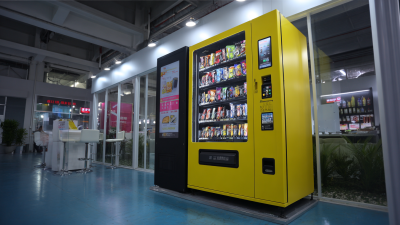
Exploring Opportunities in Owning a Vending Machine at the 138th Canton Fair 2025
-
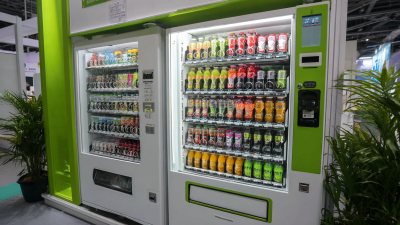
Exploring Healthy Vending Machine Franchise Opportunities at the 2025 China Import and Export Fair
-
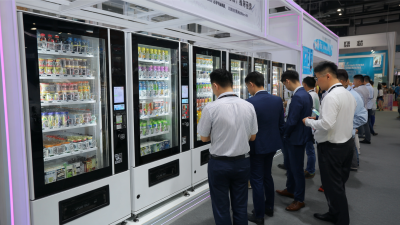
Transforming the Future of Retail with Refrigerated Vending Machines at the 138th Canton Fair 2025





